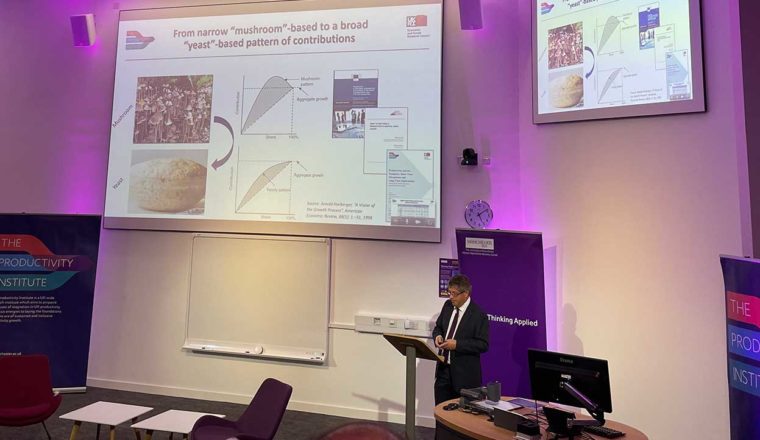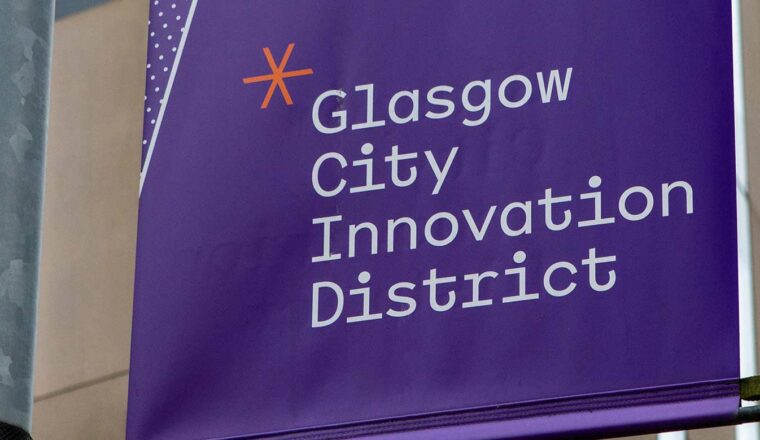How pandemic disruption can lead to better technology for the workplace
Martin Fleming is a member of The Productivity Institute. He’s Chief Revenue Scientist at Toronto-based software company Varicent and worked at IBM for 20 years, becoming chief economist, and is still involved with the MIT-IBM Watson AI Lab in Cambridge, Massachusetts.
The coronavirus pandemic created an enormous remote workforce almost overnight in March 2020. This has led to a new reliance on digital tools like Teams or Slack for communication alongside the more traditional tools of email and texting.
The problem is – all of them are being used at the same time. I hate to say it, but I sometimes have five devices all active, all in front of me. And there’s a significant risk and danger that all these new tools will very easily overwhelm workers and risk their health, their safety and their job satisfaction.
With the commute eliminated, there’s frequently more time being consumed by work and there’s a significant danger of not being able to optimise work-life balance.
The constant notifications do create an expectation of immediate response. Even while senior leaders are understanding of this, the technology and the tools create an expectation and desire among workers to be responsive – even in the most understanding of organisations.
Improving collaboration technology
How do we utilise these collaboration tools without damaging employee motivation? We’ve not yet found that balance. Given the experience of 2020, there is important work ahead, both for the technology industry and for business leaders to be able to prioritise and sort out the use of various tools to create a work environment that is more productive for workers, but also creates better work-life balance.
Our experience as consumers also carries over to our experience as professionals. We know that in a retail e-commerce consumer environment there have been quite powerful tools created that have simplified transactions and there’s an expectation that that same capability will be carried over to a work environment. But we’re still we’re still really lacking those solutions yet.
Using data to help boost productive working
There are some quite large technology providers who now have enormous data – think of Microsoft and Google. They know exactly the hours of the day we’re using their tools, applications and websites. Our phone providers know where we are every moment of the day.
With all this data being accumulated on worker’s practices and habits, I would expect over time for that to be used by providers to hopefully create some solutions. It’s a great example of the disruption and the destruction that the pandemic has brought that will force transformation onto many fundamental business processes.
The world has changed. There’s more e-commerce, there’s more work from home – and that’s just the beginning. We’re going to see that there is significant need, as well as business opportunity, to transform both business and household economic activity in quite fundamental and significant ways.
We’re at that access turning point now where we can take the opportunities and get the positives coming. It’s fascinating to watch how such a significant disruptive event can propel a fundamental change in global economic activity.
“We pretend to work; they pretend to pay us”
One way to help overcome some of these problems is through employee engagement – the skill, the satisfaction and the ability to provide quality support and compensation as a package of the work experience.
There’s an old expression from Eastern Europe, where workers say: “we pretend to work and they pretend to pay us” which I think a great simple illustration of a lack of engagement.
An example of this – back in the time when we were regularly travelling – you’d get on a flight and the flight attendants are providing the support and the service and the safety that’s necessary. You get off the flight feeling as though you’ve had a very positive experience. Consequently, you are likely to go back to that airline and be a repeat customer.
The quality of the worker engagement, particularly in a services environment, improves the economics of the business. The high-margin, high-profit repeat business is a function of the employee’s ability to deliver a quality service and to be engaged in their role.
This can be improved across many organisations and many industries. The financial benefit to the business and the productivity of the employees can be significantly improved by increased employee engagement – we have a growing body of research among economists demonstrating that.
Happier employees lead to a more profitable business
When wages and compensation are competitive, it reduces the emotional toll and burden on workers who are able to focus and concentrate on their work.
We have some interesting work from the US around care home service delivery and improvements, measured by a number of standard metrics, which have been improved as a result of improving salaries and work conditions.
This is similar to research taken among Indian data contract workers. When their work environment is improved, they deliver higher productive efforts. There’re other academic studies in the UK and in Germany as well – a growing body of evidence that demonstrates that the improving the quality of the employer-employee relationship is not a cost, it’s not an expense, but it is a financial benefit to the firm.




